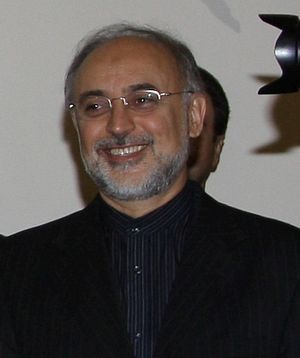Ali Akbar Salehi, the head of Iran’s Atomic Energy Organization, told Iran’s PressTV that the country would be willing to modify the controversial heavy-water reactor at Arak. Arak has been a major source of concern for the international community and reportedly was a major sticking point for the P5+1 (particularly Laurent Fabius of France) during negotiations for the interim deal back in November 2013.
The issue came up during the interview when Salehi broached the issue of Iran’s plutonium production. Salehi clarified the conventional Iranian position on Arak: it is a research reactor with no reprocessing facilities that could be used to create weapons-grade plutonium. “We don’t want to make MOX (Mixed oxide) fuel, we don’t want to extract the plutonium and the plutonium is a not a weapons-grade plutonium in the first place and we don’t want to extract it even for MOX. So that’s it,” he added.
The indication that Iran may modify Arak came when Salehi noted in response to the interviewer’s question about whether Iran “really needs” Arak given its relatively ancillary role in Iran’s nuclear program. Salehi notes that Iran “can do some design change in other words make some change in the design in order to produce less plutonium in this reactor and in this way allay the worries and mitigate the concerns.” Salehi indicated that Arak might ultimately be converted to a light-water reactor, which would severely mitigate the risk of Iran clandestinely producing weapons-grade plutonium.
Salehi’s comments during the interview don’t appear to have been conveyed to P5+1 via official channels but it wouldn’t be too far-fetched to imagine this issue coming up at the negotiating table as Iran and the P5+1 seek to forge a comprehensive final deal. When the P5+1 and Iran meet again to hopefully review the deal and work towards a permanent deal, Iran will be able to offer a major concession in the form of a reactor conversion at Arak. Iran is already holding off on continuing any work on Arak for the course of the interim deal.
Salehi repeatedly emphasized that Arak, despite being a heavy-water reactor capable of producing weapons-grade plutonium, was not doing so. “Weapons-grade plutonium is not produced by this reactor. This reactor will produce about 9 kilograms of plutonium, but not weapons-grade plutonium. I want to underline this, not weapons-grade plutonium,” he notes.
He also noted that Iran already produces plutonium at its light-water facility at Bushehr but the international community has mostly focused on Arak because it could potentially be converted to produce weapons-grade plutonium. “But you see, why don’t they speak about production of plutonium in light-water reactors? In Bushehr, we are producing plutonium in Bushehr. The technical answer is that not all plutonium is good plutonium for weapons. You have, in jargon, ‘weapons-grade plutonium’,” he explains.
It’s been a few weeks since the interim deal between the P5+1 and Iran went into effect. For the moment, both the P5+1 and Iran will have to see the deal through until July. While the interim deal is in effect, both sides will return to the negotiating table with the daunting task of forging a permanent deal.

































